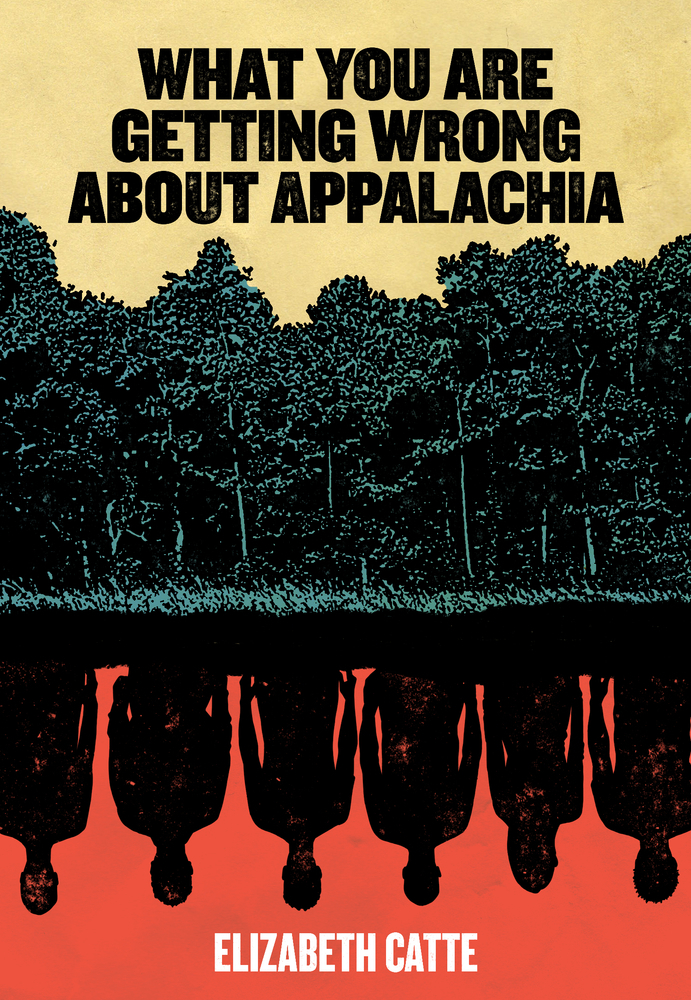What do you think?
Rate this book


200 pages, Paperback
First published February 6, 2018
If Appalachians could be tamed and put to industrial purpose, these theories suggested, then they might be spared the bloodshed, vice, and moral degeneracy natural to their primitive existence. This was music to the ears of developers, who justified economic expansion by contending that modern employment would bring order and harmony to the mountains and save mountaineers from their own worst impulses in the process.I recently served a patron who checked out a hardcover of Kobabe's Gender Queer in one hand and an audiobook of J.D. Vance's HE in the other, and if you expect me to be similarly neutral about presenting one of the most challenged books in the US alongside one of the most fatuously mainstream, go fuck yourself. It did make me glad that I had recently started supplementing my personal collection diet with public libraries again, as while the best time to pick up this particular book would have been right after publication, six years later in the aftermath of a certain VP pick and right before Banned Books Week certainly has to rank up there. For while some folks are concerned about 'balance', I'm a professional, and what I need is not the definition of 'terrorism' changing depending on who's getting the biggest aid packages from my government, but a window into why a former coworker of mine would feel not just comfortable with labeling the land encompassing hundreds of millions of fellow citizens as a death trap, but just, practically noble even.
Curiously, the mountaineers identified by both Rothstein and the authors of Hollow Folk as the most degenerate lived in the area of the Shenandoah Valley closest to the developed areas of the future national park, where wealthy businessmen hoped to accelerate evictions to begin the expansion and new construction of vacation resorts.What I found were field mines of my own biases, acres of good historical fact, and an entire world that looked a lot like what I had experienced/engaged with (imperialism as social paradigm) but had its own intersectional complexities to consider (you can't have land back as a settler, no matter how many times you've been targeted by eugenics or corporate magnates). The union work was especially gnarly, and as I look into the likely future of filing a grievance against my city of work for conflating market adjustment with cost of living, I think of how human sacrifice was legalized back in the day and of the worth in making sure the individual understands what's going on so that they can carry it to the friend to the family to the locals to the world and how much the sort of elitism that piggybacks on Appalachian stereotypes would interfere with that effort.
The store owners, incidentally, did provide provisions to striking miners, especially those with children. And for their generosity the commonwealth rewarded them with charges of "criminal syndicalism[".]All in all, much as the dehumanization of unhoused folks stamps down on workers' rights, casting entire portions of the country into the fire as irredeemable (thinking of Florida, thinking of the South) shoves orientations towards equity off-kilter everywhere (thinking of California going petty fascist with every caving to the NIMBYS and the 'parents rights' mewlers), and if Trump gets elected, it's going to be because my 40-years-Silicon-Valley-resident mother voted for him a third time, not what some hillbilly six states away chooses to do with their gun. I'm the opposite of well-traveled, so I can't say I would ever make it over to Appalachia unless I went out of my way to attend a librarian conference (which wouldn't be the most outlandish thing to be honest). However, Catte took me there in every way I needed and then some, so while I may mess with that five stars to satisfy my own re-calibrations, it won't be any time soon.
For white people uncomfortable with images of the civil rights struggles and the realities of Black life those images depicted, an endless stream of sensationalized white poverty offered them an escape—a window into a more recognizable world of suffering.